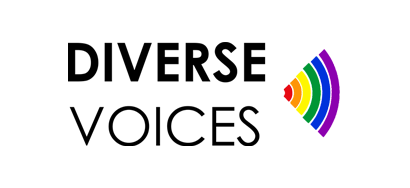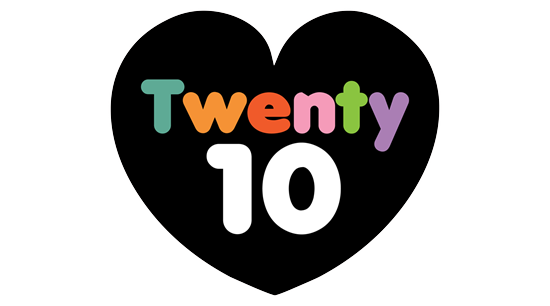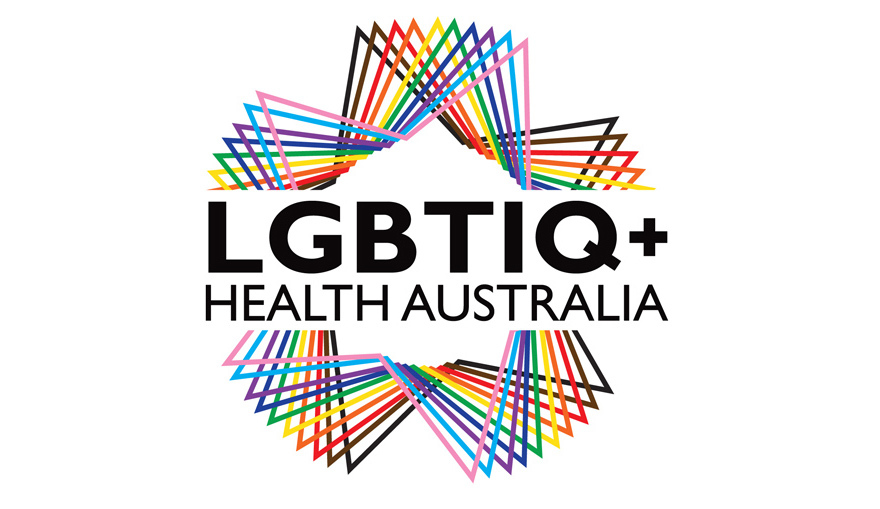Service provider: LGBTIQ+ Health Australia, with delivery partners Twenty10, Living Proud, Diverse Voices, and Switchboard.
Latest page update: 04 November 2024 : Update - Added 2024 QLife User Survey results and 2023/2024 Year in Review
QLife User Survey
In June and July 2024, QLife ran a survey to hear a bit more about our service users’ experiences, and how we can improve. You can now check out the outcomes of that survey HERE.
2023/2024 QLife Year in Review
For a snapshot of the July 2023-June 2024 year at QLife, check out our year in review piece HERE.
1. Is this service for me?
What services does QLife provide?
QLife is for LGBTIQ+ people and their loved ones wanting to talk about a range of issues including sexuality, gender, bodies, feelings, or relationships. While QLife does not provide specific advice or treatment for medical conditions, people who contact QLife may do so as a tool to support their mental health including but not limited to depression, anxiety, stress, trauma, gender dysphoria, and loneliness.
Who is the service intended for?
Anyone who is LGBTIQ+ or diverse in their sexuality or gender is welcome to contact QLife. As are those who support LGBTIQ+ people including professionals, family members and friends.
What kind of assistance does the service offer?
QLife is a free and anonymous service run by LGBTIQ+ people for LGBTIQ+ people. It provides Australia-wide peer support and referral service via telephone, 1800 184 527, or webchat, www.qlife.org.au. QLife does not provide crisis mental health services. Please contact mental health services in your local area for crisis mental health support or phone 000 in an emergency.
How is the service delivered?
QLife peer support is delivered by telephone and webchat. In addition, there are resources and information you can access through our website at any time.
Are health professionals involved in delivering the service?
QLife is a peer support service, our peer supporters cannot provide counselling however they can provide referrals to LGBTIQ+ inclusive counselling service if needed.
When is the service available?
QLife is available from 3pm to midnight each day, including over holidays.
How much does the service cost? Is there any ongoing cost?
QLife is a free service. If you choose to access QLife via webchat, this will use a minimal amount of data on your device, unless you are using WiFi. If a peer supporter provides you with a referral to a different service or program, the peer supporter will endeavour to let you know if there are any fees attached to the external service, however we cannot guarantee the accuracy of these quotes as we rely on the external services to keep their details up to date.
How can I access the service?
QLife is accessed by calling 1800 184 527, or webchat through qlife.org.au. If you are contacting us by phone, you will be able to stay in a hold queue for up to 30 minutes if your call cannot be answered immediately. After 30 minutes on hold, your call will end and you will be invited to try again later.
If you are deaf or have difficulty hearing or speaking you can talk to a Qlife Peer Supporter through the National Relay Service (NRS) on the below details:
- TTY (teletypewriter) users phone 133 677 then ask for Qlife – 1800 184 527
- Speak and Listen users phone 1300 555 727 then ask for Qlife – 1800 184 527
- Internet relay users connect to the NRS by clicking NRS Chat Call then ask for Qlife – 1800 184 527
The NRS is a phone/internet solution for people who are deaf or have difficulty hearing or speaking. For more information, see NRS Information. For a video explaining their services, click for an NRS video.
QLife is currently exploring interpreting options. It is important that any interpreting option offered is safe and inclusive for members of our communities. Unfortunately, we are yet to find any interpreting service committed to training its workforce in LGBTIQ+ inclusivity. If translation is something you require and would like to speak with us about your needs, or if you are able to offer any recommendations or suggestions in this area, please contact ask@qlife.org.au
Can I access the service anonymously?
QLife does not collect any identifying information about you like name, phone number, email address, IP address etc. There is no expectation or obligation for you to share your personal information with us, and you can use a pseudonym if you choose. We do request your postcode and other de-identified information like gender or background to help us better support you and that information is stored on our secure servers. To ensure the privacy of QLife contacts and peer supporters, QLife peer supporters will not provide their name or location.
Does the service allow my carer, family member or support person to work with me to use the service?
While most people choose to contact us for one-on-one support, you are welcome to have another trusted person with you while you engage with our peer supporters. We just ask that you let the peer supporter know that you have a support person with you.
2. Will I benefit if I use this service?
Is there any independent scientific evidence of benefit from using this service?
The most important distinction between peer support and other forms of social support is that the source of support comes from a peer, someone who has a fundamental shared experience with the support seeker. Peer support is a system of giving and receiving help, founded on the key principle of shared experiences. These common personal experiences can foster meaningful connections and a deeper sense of understanding and empathy between peers who may otherwise feel misunderstood. This connection, or affiliation, is a deep, holistic understanding based on mutual experience where people can ‘be’ with each other without the constraints of traditional (expert / patient) relationships: Mead, S., Hilton, D., & Curtis, L. (2001). Peer support: A theoretical perspective. Psychiatric Rehabilitation Journal, 25(2), 134-141.
Is the service endorsed by a government or professional body?
QLife is funded by the Australian Government. The contract holder for the program, LGBTIQ+ Health Australia, is the national peak health organisation in Australia for organisations and individuals that provide health-related programs, services and research focused on lesbian, gay, bisexual, trans/transgender, intersex, queer and other sexuality, gender, and bodily diverse people.
3. Could this service do me harm?
Are there any precautions or safety warnings related to this service?
While QLife provides support to LGBTIQ+ people during difficult times, QLife is not a 24/7 crisis support service. While we can talk to you about your mental health or feelings about suicide, in a crisis we will refer you to a service that has the capacity to support you like Suicide Call Back, Beyond Blue or Lifeline. While our peer supporters have Applied Suicide Intervention Skills Training, QLife is not best placed to support you in a crisis.
QLife understands our communities may have experienced a range of personal and social trauma. However, QLife Peer Supporters and staff have the right to work in a safe workplace free from homophobia, transphobia, biphobia, ableism, and threats of harm. Phone calls or webchats to QLife that contain abusive, aggressive, or threatening language or behaviour will be terminated.
Has anyone reported concerns or adverse health events after using this service?
QLife is committed to continuous improvement and ensuring its service is safe and of high quality. QLife actively seeks and welcomes feedback from service users to support this continuous improvement.
4. Should I trust this service?
What is the business model for the service provider?
QLife is funded by the Australian Government. LGBTIQ+ Health Australia hold the national contract, and the service is delivered in partnership with four delivery partners:
- Western Australia – Living Proud
- Queensland – Diverse Voices
- Victoria – Switchboard
- New South Wales – Twenty10
How does the service make money?
As a federally funded program, QLife does not operate for a profit. If you would like to make a donation to QLife, this can be done on a one-off or a monthly basis by completing a QLife donation form on the LGBTIQ+ Health Australia website.
5. Is the service easy to use? Will I keep using it?
How much time will it take me to use this service as suggested?
QLife is currently able to offer 1 x 25-minute contact. There is increasing demand on the QLife service. In order to support as many community members as possible there are time limitations on calls and webchats.
How long will it take to get results from using this service?
QLife is intended as a single-session brief intervention service aiming for you to feel heard, safe and respected and to decrease your immediate distress. It is intended as a supplement to, not a substitute for, any other support systems you have in place. While some people may choose to contact QLife on a regular basis, we do not have mechanisms for measuring long-term outcomes based on recurring use of the service.
Were people with lived experience involved in developing the service?
QLife was developed by the LGBTIQ+ community for the LGBTIQ+ community. It is also delivered by a team of staff and volunteers, all of whom have lived experience as LGBTIQ+ people. QLife has also consulted with service users in workshops focused around service improvements and utilises insights from surveys.
Will this service link with other health services?
QLife peer supporters have access to a resource database where they can look for additional services that might support you. They can share the details of these services, but you would need to then contact them separately. You can also see the database here: https://qlife.org.au/resources/directory
6. Who will have access to my personal data?
What information does the service collect about me?
QLife does not track or collect your IP address, phone number, name, email or other identifying details. We do request your postcode and other de-identified information like gender or background to help us better support you and that information is stored on our secure servers.
Being anonymous means you do not need to share personal information to use QLife.
Personal information is names, addresses, phone numbers etc and we do not store that information in any system for QLife, except where required by law eg. mandatory reporting of risk.
While we don't have phone numbers stored we do use an encryption system so we can understand the demand for QLife. We need to know how many individuals are trying to contact and the patterns for demand, when the peak times are. This helps us roster people on at the busiest times.
The encryption blocks out everything apart from the last four digits.
The scripts of QLife webchats are kept securely for supervision and training purposes. If you provide personal information during a webchat, this information will be kept as a part of the webchat script. This information is stored securely and not used for any purpose other than training and supervision.
You may notice that QLife provides the option for webchat users to share their sex, gender and/or sexuality if they wish to do so. This is for reporting purposes only.
If you have any questions about how we ask these questions, please see LGBTIQ+ Health Australia’s Fact Sheet: The Australian Bureau of Statistics (ABS) Standard for Sex, Gender, Variations of Sex Characteristics and Sexual Orientation Variables 2020. This has been developed to standardise the collection and dissemination of data relating to sex, gender, variations of sex characteristics and sexual orientation.
Who owns that data?
Anytime you do consent to share personal information with us for a specific purpose we store and handle the information according to our privacy policy and the Australian Privacy Principles. The data is under the custody of LGBTIQ+ Health Australia as the contract holder for the QLife service nationally.
Who is that information shared with and why?
Aggregated, deidentified data is shared internally and externally for operational, planning, reporting and funding purposes.
During a call or webchat if you tell us about a risk to a child or an imminent risk of serious harm to someone of any age (such as a plan for a suicide attempt) we are obligated to notify the relevant authority. If you or someone else is at serious risk of harm you can choose & consent to sharing personal or contact information with us so we can get help to you.
Abuse and causing harm is never okay and QLife has a duty of care to our callers and web-chatters. This includes protecting and advocating for the rights of children and young people to live a life free of violence of any kind. During the course of a call or webchat with QLife, if you tell us about a risk of harm to someone who is under 18, the Peer Supporter will need to notify their manager. Together they will report any information they do have to the child protection agency in your state. We are legally obligated to do this, but it is up to you how much detail you want to give us about the issue. If you tell us about a serious risk of imminent harm we are required to inform emergency services of any information we do have about the situation such as postcode etc.
Where is information about me stored?
QLife does not store any personal data about you on its case note platform. Any personal information provided or received for a specific purpose is stored on secure IT networks managed by LGBTIQ+ Health Australia.
Can I review and/or delete data that has been collected about me?
If you have provided us with any personal information, you have the right to ask for it to be deleted or permanently de-identified at any time.
Does the service have a data-sharing (privacy) policy?
Please see here for our Privacy statement.
What security measures are in place to protect my personal information?
QLife engages Mobile Geeks as our dedicated IT subcontractor to ensure our systems and networks are secure. QLife also has a variety of internal policies and procedures which all staff and volunteers are expected to adhere to, including strict confidentiality measures prohibiting the sharing or misuse of any personal information.
7. Who can I contact with questions or concerns about this service?
How can I contact the service provider?
In the event one of our peer supporters is unable to provide the answers you are looking for, you can contact the QLife National team at ask@qlife.org.au with any questions or concerns about the service.
Where can I go if I have concerns about this service?
If you have concerns about QLife, we would appreciate the opportunity to hear your feedback and hear how we might be able to improve. You can contact the QLife National team by email at ask@qlife.org.au.






